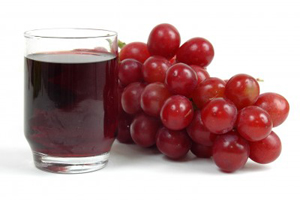![]()
Blog @ SunTech
Advice from the BP Measurement Experts
Concord grape juice lowers BP? Not so fast!
 The New Year is upon us and a lot of us have declared to get healthier in 2011. Whether you have started a new workout regimen or have changed your diet to consume more fruits and veggies, any change is good change, right? Growing up in North Carolina, where we fry everything from chicken to green beans, I was never fond of eating healthy so my mother always stressed the importance of “drinking your juice” instead of so many soft drinks. However, recent research may shed some light on the effects of juice consumption. Being that SunTech Medical is your one-stop shop for blood pressure (BP) measurement expertise, let’s explore the effects juice consumption has on BP!
The New Year is upon us and a lot of us have declared to get healthier in 2011. Whether you have started a new workout regimen or have changed your diet to consume more fruits and veggies, any change is good change, right? Growing up in North Carolina, where we fry everything from chicken to green beans, I was never fond of eating healthy so my mother always stressed the importance of “drinking your juice” instead of so many soft drinks. However, recent research may shed some light on the effects of juice consumption. Being that SunTech Medical is your one-stop shop for blood pressure (BP) measurement expertise, let’s explore the effects juice consumption has on BP!
In 2004, Park et al. published an article in Biofactors that examined the effect of Concord grape juice on blood pressure in untreated, mildly-hypertensive Korean men (systolic BP > 130 mmHg and diastolic BP > 90 mmHg). For an 8-week period, 21 subjects consumed two daily servings of Concord grape juice while 19 subjects consumed a calorie-matched control drink that looked, smelled, and tasted like Concord grape juice (placebo). Automated, in-office BP was measured and recorded on weeks 0 (baseline), 4, and 8. Park et al. observed a 7.2 mmHg reduction in systolic BP and a 6.2 mmHg reduction in diastolic BP, suggesting that the consumption of Concord grape juice may have a positive effect on those with elevated BP.
A recent article in The American Journal of Clinical Nutrition investigated the effects of Concord grape juice on ambulatory blood pressure monitoring (ABPM) in patients with prehypertension (systolic BP of 130-139 mmHg and diastolic BP of 85-89 mmHg) and stage 1 hypertension (systolic BP of 140-159 mmHg and diastolic BP of 90-99 mmHg). In contrast with the Korean study, all subjects received both beverages, Concord grape juice and the placebo. Each beverage was consumed for an 8-week period with a 4-week rest period between beverages. 24-hour ABPM was performed on 64 subjects before the consumption of each beverage and during the last 24 hours of each beverage consumption period. Dohadwala et al. observed no significant difference BP response after the consumption of Concord grape juice.
As you can see, the BP response to Concord grape juice is alarmingly different for the two studies outlined above. Indeed there are differences with the subject population that should be taken into consideration. The participants in the Korean study had higher blood pressure measurements at baseline compared to the Dohadwala study. Research has demonstrated that those with higher baseline BP demonstrate a more significant response to diet intervention, or in this case, juice consumption. However, it seems that the most obvious difference is the method of BP measurement. The Dohadwala study used ABPM, a technique proven and validated as the gold standard for the prediction of cardiovascular risk, often considered superior to traditional in-office BP measurement. It seems that the contrast of these two studies unmistakably illustrates the relevance and benefit of ABPM. If you have any thoughts or comments, feel free to share!
Interested in getting more SunTech news, product info, as well as
tips, tricks, and insights from BP experts?
Sign up to get fresh content delivered direct to your inbox.



